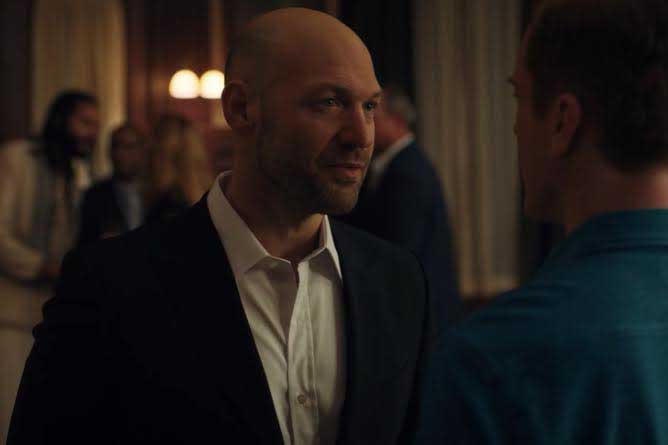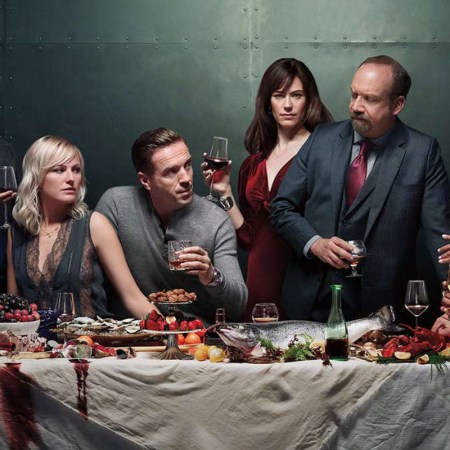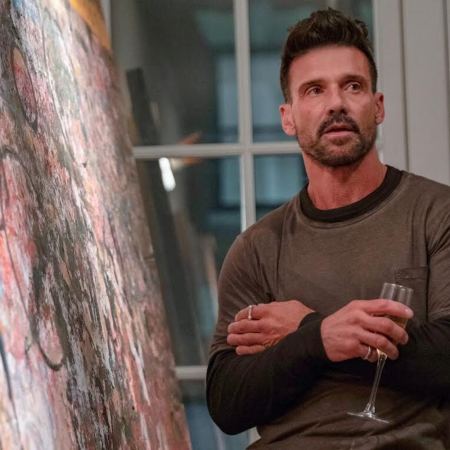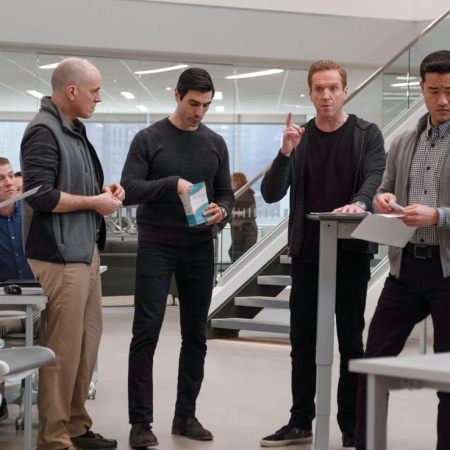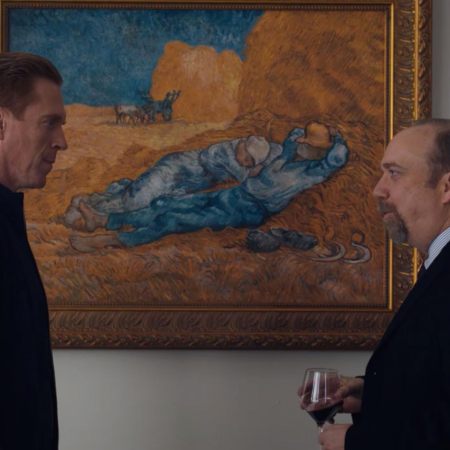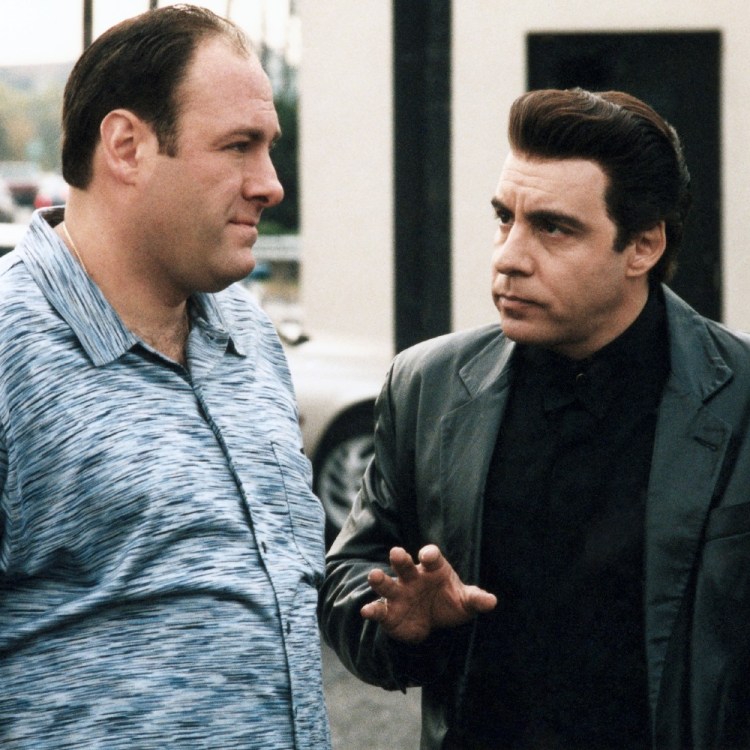Every Sunday night, we’ll be diving into the latest episode of Billions — the best finance-driven dramedy on premium cable — with a technical assist from Elliot Grossman, a veteran of the financial services industry. Since Billions is loosely based on real characters, we’ll be homing in on how the show tracks with the real world events and situations that inspire it. But of course, we’ll also be celebrating its wild excesses, shoddy ethics, endless cringes and highly questionable dancing.
Last week, we tackled the Season 5 premiere, “The New Decas.” This week, we’re heading headlong toward “The Chris Rock Test.”
Rock the Mike
Sure, there were some little threads and subplots back at the offices in New York, but the meat of this episode takes place Upstate. Of course, I’m talking about “The Mike,” the exclusive summit held by new Axe rival Mike Prince. Everything about “The Mike” is so on the nose, it’s practically in the nostril. Fireside chats about capitalism, low-lit shots of whiskeys poured into tumblers, a “Shake the Quake” volunteer event to help Honduran earthquake victims, and, as Wags puts it with barely-held contempt, “the high-mindedness of the mountain air.”
In Billions fashion, we get a classic name-drop for our setting: The Mohonk Mountain House, that old Victorian Castle in the Catskills, which has hosted every variety of exclusive guest, from industrialists like Carnegie and Rockefeller to sitting presidents like Teddy Roosevelt, Taft and Clinton. The pageantry begins with Prince flying himself in solo like Lindbergh on the Spirit of St. Louis and landing triumphantly before his cheering guests. With the aw-shucks energy of a high-school baseball coach, he proclaims that, with Axe’s help, they’re going to “kick some butt together” at the summit.
But like everyone else in attendance, Axe, along with Wags and Taylor, isn’t there on a goodwill mission: he’s there to embarrass Prince on his home turf. Still fresh off his Alaskan vision quest with Axe and their shaman Bram Longriver, Wags tasked with priming Simon Shenk, a future FDA apparatchik, about the money-making potential of medicinal ayahuasca. Meanwhile, Taylor is charged with re-engaging with Oscar Langstraat (Mike Birbiglia), the venture philanthropist, sweet nerd and their erstwhile love interest from last season, who has gone MIA since Taylor’s unceremonious return to Axe Cap. How will everyone fare?
Purity vs. Monstrosity
Throughout Billions, we pay a lot of attention to the why of finance and power. It’s handled elliptically and directly. (I mean, for the love of God, Wendy’s superpower in Billions is coaxing the killer instincts out of Axe Capital analysts.) This episode in particular goes at the theme without much subtlety. It begins with Chuck Rhoades sitting in a therapist’s office reckoning with why he must destroy Axe before he can sort his own demons out, and lest you doubt his commitment to cause, he gets himself waterboarded(!!!) a few scenes later.
Meanwhile, at their long-awaited fireside showdown, Axe and Prince spar to a draw about the merits of capitalism for pure profit and for good. An unrepentant Axe accuses Prince of doing good to cover up his guilt for being rich, while Prince essentially accuses Axe of not realizing how privilege has factored into his success. According to our Billions shaman, this friction between the do-good (ESG) investors and the unfettered capitalist types is real. “There is always tension in finance regarding these kinds of shifts in thought or pedagogy,” Grossman explains. “There are people who believe that ESG concerns have no place in finance and that it actually violates fiduciary responsibilities to perform in your client’s best interest.”
The Axe-Prince battle also gestures at two competing ideologies that are central to American politics right now. Axe, the self-made, self-determined, rugged individual, who rises from nothing through hard work and effort and innate talent versus Prince, who believes (or says he believes) that he “didn’t do it alone,” that he’s the beneficiary of the town that raised him, his race and gender, public education and the infrastructure of the country.
But is Prince the best messenger for purity here? And is this dialogue a normal feature of finance culture? Some of us aren’t buying it. “The best way I can answer this is the cliché that ‘money talks and bullshit walks,’” Grossman says. “If it really did ‘take a village,’ then why is he/she the billionaire with all the power? Shouldn’t a village in Indiana be rolling in it?”
Despite all the lofty ideals of “The Mike,” if there were a word cloud of this episode’s dialogue, we’d see “monster” somewhere in the bold type. Axe is a self-professed “monster,” Mike Prince is a monster but a “cuddly” one, and Chuck is a monster who is trying to reform himself by living by a code. Taylor, on the other hand, must be taught how to unleash their monster because having an analytical mind simply isn’t enough. Even Bram Longriver, the pure-as-driven-snow Alaskan shaman, outs himself as a monster by jilting Axe and Wags for Mike Prince as a partner in the ayahuasca gambit.
If there’s a soft spot in our cold hearts for good intentions and social purpose-oriented capitalism, it’s probably better embodied by Oscar Langstraat rather than the insufferable bombast Mike Prince. After all, at the end of the day, it’s Oscar who truly seems to put his money where his mouth is. Explaining why he can’t work with Taylor anymore, he puts it all on simple, moral terms: “I don’t want to have my money with Bobby Axelrod. I don’t want to be associated with him. And if you are, I don’t want to be associated with you.”
The Chris Rock Test
As for the episode’s title, “The Chris Rock Test,” what does it mean? We never exactly find out. We’re left to suppose it involves seeing your own estranged daughter at a strip club, which happens to poor Wags in this episode. That may be too specific. Perhaps it’s shorthand for when personal matters interfere with (and ultimately supersede) business matters.
In a later scene, we witness Wags redeem himself by managing Christ-like restraint when his mark, Simon Shenk, unwittingly goes on about Wags’s daughter in less-than-gallant terms. Whatever the case, failing the “Chris Rock Test” is serious business. The mere mention of it was enough to startle Axe out of the limbering arms of a Mohonk yogi and to embrace a tearful Wags. In the words of Jeffrey Lebowski, a proto-ESG-style capitalist: Strong men also cry.
Odds and Ends
This episode again places the old-school (fundamental) analysts at odds with the new generation of data-driven (quant) finance kids in the form of a hilarious scheme featuring Dollar Bill and Taylor Mason Capital jergeneer Will Roland. For a reality check, I had to know how central the gut instinct is to contemporary finance.
“In years past I think that would have been more true,” Elliot offers. “But today data science and data analysis run the show. There are very few places, if any, especially of serious firms, that take ‘shots’ on stocks. Generally, investment managers, whether hedge funds or otherwise, have detailed and rigorous investment theses that utilize vast amounts of data.”
And for those of you looking to better grasp the philosophical underpinnings of blitz chess, here are ALL FIVE HOURS of the 2019 Blitz Chess Championships.
Until next week, may the FDA move boldly forward on medicinal ayahuasca for all and may you never have to crawl ass-to-mouth through an algorithmic centipede.
This article appeared in an InsideHook newsletter. Sign up for free to get more on travel, wellness, style, drinking, and culture.
